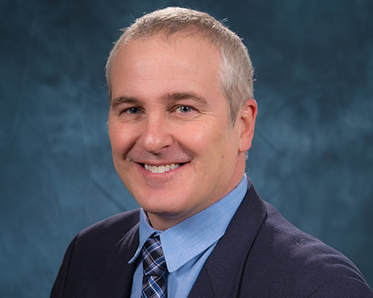Big Data for the Church

Big Data is a way of connecting with church and community members in ways that we never have before. Data is defined by the three V's of information: Velocity, Variety, and Volume. What makes big data so important for our Church is that it helps us take actionable steps that go beyond a common sense approach.
Big data allows us:
1. To make decisions in the now
2. To try and predict the future and act on it
3. To benchmark ourselves against others (and ourselves)
4. To create language around which we can tell stories or communicate with one another
Using big data we want to engage church members and increase the investment and advocacy of our message within the communities we serve. In a moment of crisis, be it physical, emotional, relational or spiritual, what are the needs of our communities? What is it that we should be trying to fix? Big data analytics cuts through the clutter and can help define what those needs are.
Who are our strongest competitors in the market of discipleship? Who is out there? Who is setting the pace in ministry both inside and outside of the Seventh-day Adventist Church? Which churches are attracting middle class Americans and their families? How are they doing it and how can we incorporate that into our own base? Data can help us find that.
What if we could have access to the interest, concerns, preferred literature, distribution sources, and message methods of millennials? Jesus used parables…what should we use today? Why not let big data answer that for us?
Check back often and read our blog, sign up for our newsletter, and see how big data can help make your Church a better organization for each of us.
Click here for free Data Sources
Big data allows us:
1. To make decisions in the now
2. To try and predict the future and act on it
3. To benchmark ourselves against others (and ourselves)
4. To create language around which we can tell stories or communicate with one another
Using big data we want to engage church members and increase the investment and advocacy of our message within the communities we serve. In a moment of crisis, be it physical, emotional, relational or spiritual, what are the needs of our communities? What is it that we should be trying to fix? Big data analytics cuts through the clutter and can help define what those needs are.
Who are our strongest competitors in the market of discipleship? Who is out there? Who is setting the pace in ministry both inside and outside of the Seventh-day Adventist Church? Which churches are attracting middle class Americans and their families? How are they doing it and how can we incorporate that into our own base? Data can help us find that.
What if we could have access to the interest, concerns, preferred literature, distribution sources, and message methods of millennials? Jesus used parables…what should we use today? Why not let big data answer that for us?
Check back often and read our blog, sign up for our newsletter, and see how big data can help make your Church a better organization for each of us.
Click here for free Data Sources
About Paul Hopkins, Director of Social Media + Big Data Services

Paul Hopkins is an accomplished executive with more than a decade of philanthropic experience in the nonprofit sector. He is a senior manager with an extensive, proven track record of professional accomplishments as a fundraiser, strategic planner, organizational developer, manager, trainer, and consultant.
Paul started his nonprofit career at Adventist World Radio (AWR) as the annual fund manager. Under his watch AWR dramatically lowered donor acquisition costs, attained 20-60% higher donor response than industry norms in direct mail, and produced roughly 80% of their fundraising budget through direct mail efforts. He was also able to expand the donor base by 22% and doubled the amount raised despite an economic decline and reduced budget.
Later Paul was invited to Philanthropic Service for Institution (PSI) as an associate director of the department to help shift executive perspectives of philanthropy into an institutional directive, and prefers to empower leadership with “Why,” as opposed to “How,” thinking. His website redesign has allowed clients to work more closely together and provided a rich multimedia area that broadens the scope of what PSI does and how it disseminates its training and resources in cost effective manner.
Paul has since become the Director of Social Media + Big Data Services, where he is responsible for creating and overseeing a comprehensive plan to equip the Church in North America to utilize digital communication effectively and educate church employees and members about social media usage and benefits as well as data utilization.
He is currently focusing on data visualization dashboards and data strategy as a way to make data analysis friendly, uncover amazing insights, and interact with data in ways that allow for better decision making.
Paul started his nonprofit career at Adventist World Radio (AWR) as the annual fund manager. Under his watch AWR dramatically lowered donor acquisition costs, attained 20-60% higher donor response than industry norms in direct mail, and produced roughly 80% of their fundraising budget through direct mail efforts. He was also able to expand the donor base by 22% and doubled the amount raised despite an economic decline and reduced budget.
Later Paul was invited to Philanthropic Service for Institution (PSI) as an associate director of the department to help shift executive perspectives of philanthropy into an institutional directive, and prefers to empower leadership with “Why,” as opposed to “How,” thinking. His website redesign has allowed clients to work more closely together and provided a rich multimedia area that broadens the scope of what PSI does and how it disseminates its training and resources in cost effective manner.
Paul has since become the Director of Social Media + Big Data Services, where he is responsible for creating and overseeing a comprehensive plan to equip the Church in North America to utilize digital communication effectively and educate church employees and members about social media usage and benefits as well as data utilization.
He is currently focusing on data visualization dashboards and data strategy as a way to make data analysis friendly, uncover amazing insights, and interact with data in ways that allow for better decision making.
